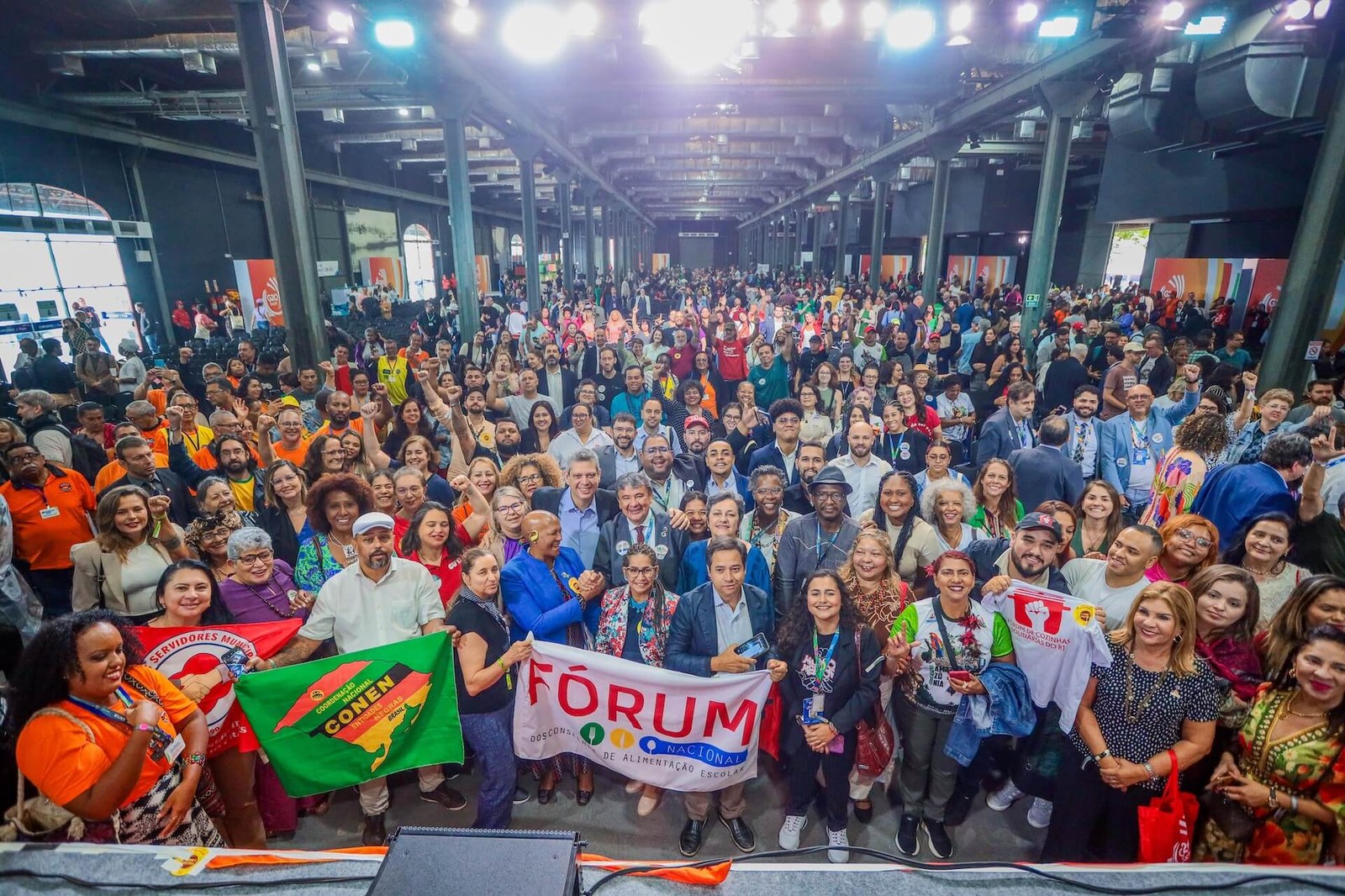G20 Social: Brasil guides new global agenda against hunger
Brasil proposes the Global Alliance Against Hunger and Poverty, discussed at the G20 Social, to unite countries in sustainable food production, combating inequalities, and eradicating global hunger.

By Leandro Molina/Site G20 Brasil
One of the main issues under discussion in the G20 Social Territory in Rio de Janeiro is the Global Alliance proposed by Brasil to fight hunger and poverty. The Alliance is founded on the principle that no country can fight hunger on its own. The Brazilian initiative, which will be launched at the Leaders' Summit, seeks to unite developed and developing nations in coordinated actions that range from expanding the production of healthy food to supporting family and sustainable agriculture.
For Wellington Dias, Minister of Social Development and Assistance, Family, and Fight Against Hunger, the urgency is evident. He cited data from the 2024 State of Food Security and Nutrition in the World (SOFI) report, which revealed that 733 million people faced hunger in 2023, representing one in 11 people globally. Africa remains the most affected region, with 20.4% of the population facing hunger, while Asia accounts for more than half of global cases.
Ibrahima Coulibaly, president of the Pan African Farmers' Organization, highlighted the importance of supporting family farming and strengthening public policies in developing countries. “The world does not lack financial resources, but a fair distribution. Brazil serves as inspiration with its leadership,” said Coulibaly.
The minister highlighted that in Brasil hunger has decreased in the 2021-2023 period, dropping from 32.8% to 18.4% regarding the population facing moderate or severe food insecurity. With these advances, the government predicts that the country will leave the Hunger Map by 2026. “Those who are hungry are in a hurry. Count on Brasil to lead this joint effort. We do not want to be champions alone, but to work in partnership with other countries to reduce global poverty,” he said.
Among the participants, there is a consensus that the Global Alliance initiative aims not only to mitigate the immediate impacts of hunger, but also to act on structural fronts, such as reducing social inequalities and strengthening global food security, addressing issues such as the climate crisis, which intensifies food production challenges. The activity, which filled one of the warehouses of the G20 Social Territory, was attended by authorities, representatives of civil society, and social movements, highlighting the central role of public policies and social engagement in addressing hunger and poverty.
Global panorama encourages joint efforts to eradicate hunger
Nosipho Jezile, South Africa's representative to the FAO, brought to light alarming statistics: one in nine people in the world go hungry, and a quarter of the hungry population is in Africa. She stressed that Brazil's G20 presidency was crucial in promoting a global response. “Hunger is a human rights issue. The Global Alliance proposed by Brasil is a promising start, but we need to ensure that all continents are engaged,” he noted.
She added thatwhen we talk about food insecurity, it is necessary to identify the paths for food production. "A main point is how we will continue to be inclusive and how society in general will have a voice in these plans to fight hunger," he asked, defending popular participation in the political decisions of countries.
Ibrahima Coulibaly, president of the Pan African Farmers' Organization, highlighted the importance of supporting family farming and strengthening public policies in developing countries. “The world does not lack financial resources, but a fair distribution. Brazil serves as inspiration with its leadership,” said Coulibaly.
Adriana Correia, representative of solidarity kitchens in Rio Grande do Sul, pointed out the urgency of recognizing these initiatives as essential in the fight against hunger. “Since the pandemic, solidarity kitchens have fed thousands of people, and remain a pillar against hunger. We need ongoing support to sustain this work, and we rely on the help of social movements. We want solidarity kitchens to be seen as resistance, to be state policy, and not just temporary measures, "she says.
In addition, within the debates, there was consensus on the vital role of women in food production and the eradication of hunger, a point widely addressed by the Brazilian government and representatives of civil society. Daniéria Silva Carolina, land reform settler in Vale da Vitória, São Mateus (ES), participated in the G20 Social defending the importance of agroecology and the production of healthy food. "It symbolizes our struggle, it is on our agendas and it is what we defend and believe," said the peasant.
For Daniéria, the debate on the production of healthy foods is essential, especially in the context of the Global Alliance Against Hunger proposed by Brasil. She stressed that this proposal is directly linked to government incentives through public policies that strengthen programs to combat hunger and social inequalities. "It is very important that the government supports the production of healthy food. We defend this agenda because we believe that it is possible to increase production and collaborate decisively in the fight against hunger, "he said.
The discussions and proposals of the social movements will be forwarded to the plenary of G20 leaders and subsequently implemented together with the UN. Brasil intends to lead the execution of the Global Alliance Against Hunger, promoting the production of healthy food, the strengthening of family farming and social inclusion, with an emphasis on gender policies and combating climate inequalities.
With the international support won at the G20, the Brazilian government reaffirms its ambition to eradicate hunger not only in national territory, but on a global scale.
*Translated by PGET-UFSC